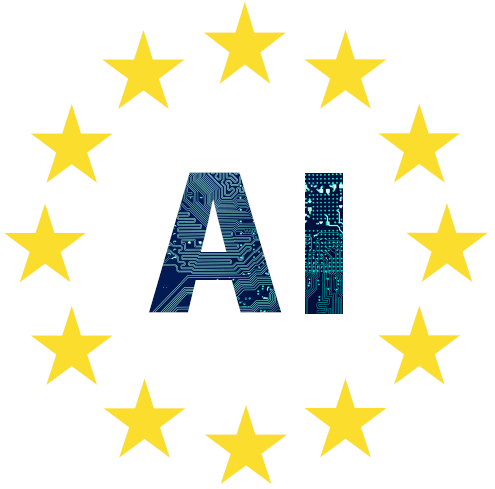Crucial Crossroads: OpenAI Drama Shadows the EU AI Act’s Future
Introduction
Hello, I am Fred, a seasoned blog writer with a keen interest in the broader implications of AI developments and their impact on European regulatory decisions. I have been following the recent events at OpenAI, one of the leading AI research organizations in the world, and the proposed EU AI Act, a comprehensive legal framework for AI in Europe. In this article, I will explore how the OpenAI drama relates to the EU AI Act, which currently hangs in the balance due to debates about ‘foundation’ model regulation. I will also offer some insights and recommendations on how to ensure that AI in Europe respects our values and rules, and harnesses the potential of AI for industrial use.
What is the OpenAI drama?
OpenAI is a San Francisco-based company that was founded in 2015 as a non-profit organization with a mission to ensure that artificial general intelligence (AGI) benefits all of humanity. In 2019, it shifted to a capped-profit model, with a board explicitly not accountable to shareholders or investors, including Microsoft, which invested $13 billion in the company. OpenAI is best known for developing ChatGPT, a powerful AI system that can generate natural language texts on various topics and tasks.
On November 17, 2023, OpenAI fired its charismatic chief executive, Sam Altman, who had been leading the company since 2019. The board did not give detailed reasons for the decision, saying only that Altman “was not consistently candid in his communications with the board” and that the decision had nothing to do with “malfeasance or anything related to our financial, business, safety or security/privacy practice”. However, some sources suggested that the firing was driven by tensions between Altman, who favored pushing AI development more aggressively, and members of the board, who wanted to move more cautiously. Greg Brockman, the co-founder and former president of OpenAI, who was also removed from the board, quit the company in protest.
Altman’s firing sparked a revolt among hundreds of OpenAI employees, who threatened to leave the company unless the board resigned and reinstated Altman. Microsoft, which uses OpenAI technology to power its search engine Bing, offered Altman a job leading a new advanced AI research team. Altman accepted the offer, but also agreed to return to OpenAI after the board apologized and agreed to overhaul the company’s governance structure. The board now includes former Salesforce co-CEO Bret Taylor, former Treasury Secretary Larry Summers, and Quora CEO Adam D’Angelo. The board also promised to pick a larger board that may include Microsoft and other investors.

What is the EU AI Act?
The EU AI Act is a proposed regulation of the European Union that aims to introduce a common regulatory and legal framework for AI. The draft AI Act was proposed by the European Commission on April 21, 2021, and is currently under negotiation by the European Parliament and the Council of the EU. The AI Act aims to “strengthen Europe’s position as a global hub of excellence in AI from the lab to the market, ensure that AI in Europe respects our values and rules, and harness the potential of AI for industrial use”.
The cornerstone of the AI Act is a classification system that determines the level of risk an AI system could pose to the health and safety or fundamental rights of a person. The AI Act defines AI systems as “software that is developed with one or more of the techniques and approaches listed in Annex I and can, for a given set of human-defined objectives, generate outputs such as content, predictions, recommendations, or decisions influencing the environments they interact with”. The techniques and approaches listed in Annex I include machine learning, logic and knowledge-based approaches, statistical approaches, and search and optimization methods.
The AI Act proposes to ban some AI systems that present “unacceptable” risks, such as those that manipulate human behavior, exploit vulnerabilities, or cause social scoring. A wide range of “high-risk” AI systems, such as those used for biometric identification, recruitment, education, law enforcement, or health, would be authorized, but subject to a set of requirements and obligations to gain access to the EU market. These include data quality, transparency, human oversight, accuracy, robustness, and security. Those AI systems presenting only “limited” risk, such as chatbots or video games, would be subject to very light transparency obligations. The AI Act also establishes a governance structure for AI, involving national authorities, a European AI Board, and a network of AI testing and experimentation facilities.
How does the OpenAI drama relate to the EU AI Act?
The OpenAI drama highlights some of the challenges and dilemmas that the EU faces in regulating AI. One of the main issues is how to deal with ‘foundation’ models, such as ChatGPT, that can be used for multiple purposes and applications, and that can have significant social and economic impacts. The EU AI Act does not explicitly address foundation models, but rather focuses on the specific utilization of AI systems and associated risks. However, some stakeholders, such as the European Parliament, have argued that foundation models should be subject to stricter regulation, such as mandatory registration, testing, and auditing, to ensure their compliance with EU values and rules.
Another issue is how to balance the promotion of innovation and competitiveness with the protection of fundamental rights and safety. The EU AI Act aims to foster trust and legal certainty for AI developers and users, and to create a level playing field for AI in the EU single market. However, some critics, such as European companies and industry associations, have warned that the AI Act could jeopardize Europe’s competitiveness and technological sovereignty by imposing excessive burdens and costs on AI providers, especially small and medium-sized enterprises. They have called for a more proportionate and flexible approach that takes into account the diversity and dynamism of AI technologies and applications.
A third issue is how to ensure international cooperation and coordination on AI governance. The EU AI Act seeks to establish a global leadership role for the EU in setting ethical and legal standards for AI, and to promote dialogue and convergence with third countries and international organizations. However, the EU faces the challenge of aligning its vision and values with other major AI players, such as the US and China, that may have different approaches and interests in AI development and use. The OpenAI drama illustrates the complexity and interdependence of the global AI ecosystem, and the need for mutual understanding and collaboration among AI stakeholders.
What are some insights and recommendations for the future of AI in Europe?
The OpenAI drama and the EU AI Act offer some valuable insights and recommendations for the future of AI in Europe. Here are some of them:
- AI is not a monolithic phenomenon, but a diverse and evolving field that requires a nuanced and adaptive regulatory framework. The EU should adopt a risk-based and proportionate approach that balances the benefits and harms of AI, and that allows for innovation and experimentation while ensuring accountability and oversight. The EU should also update and revise its AI legislation regularly to reflect the latest scientific and technological developments and societal needs.
- AI is not only a technical matter, but also a social and political one that involves ethical and democratic values and choices. The EU should engage in a broad and inclusive dialogue with all relevant stakeholders, including AI developers, users, consumers, civil society, academia, and media, to ensure that AI reflects and respects the diversity and preferences of the European public. The EU should also promote AI literacy and education among its citizens, to empower them to understand and use AI responsibly and effectively.
- AI is not only a domestic issue, but also a global one that requires international cooperation and coordination. The EU should pursue a strategic and coherent external action on AI, based on its values and interests, and in line with its commitments under international law and human rights. The EU should also seek to establish common rules and standards for AI with its partners and allies, and to foster dialogue and convergence with other regions and countries, especially those that share its vision and values for AI.
| Topic | OpenAI Drama | EU AI Act | Insights/Recommendations |
|---|---|---|---|
| Introduction | OpenAI fired its CEO and faced a revolt from its employees over its governance and vision for AI | The EU proposed a comprehensive legal framework for AI based on a risk-based and proportionate approach | The article explores how the OpenAI drama relates to the EU AI Act and offers some insights and recommendations for the future of AI in Europe |
| Foundation Models | OpenAI developed ChatGPT, a powerful AI system that can generate natural language texts for various purposes and applications | The EU AI Act does not explicitly address foundation models, but some stakeholders argue that they should be subject to stricter regulation | The EU should adopt a nuanced and adaptive regulatory framework that balances the benefits and harms of AI, and that allows for innovation and experimentation while ensuring accountability and oversight |
| Innovation and Competitiveness | OpenAI shifted to a capped-profit model, with a board not accountable to shareholders or investors, including Microsoft, which invested $13 billion in the company | The EU AI Act aims to foster trust and legal certainty for AI developers and users, and to create a level playing field for AI in the EU single market | The EU should engage in a broad and inclusive dialogue with all relevant stakeholders, including AI developers, users, consumers, civil society, academia, and media, to ensure that AI reflects and respects the diversity and preferences of the European public |
| International Cooperation and Coordination | OpenAI faced the challenge of aligning its vision and values with other major AI players, such as the US and China, that may have different approaches and interests in AI development and use | The EU AI Act seeks to establish a global leadership role for the EU in setting ethical and legal standards for AI, and to promote dialogue and convergence with third countries and international organizations | The EU should pursue a strategic and coherent external action on AI, based on its values and interests, and in line with its commitments under international law and human rights |
| Conclusion | OpenAI resolved its drama by reinstating its CEO and overhauling its governance structure, but still faces the uncertainty and complexity of the global AI ecosystem | The EU AI Act is still under negotiation by the European Parliament and the Council of the EU, and faces the challenge of finding a balance between innovation and protection | The EU should promote AI literacy and education among its citizens, to empower them to understand and use AI responsibly and effectively |




